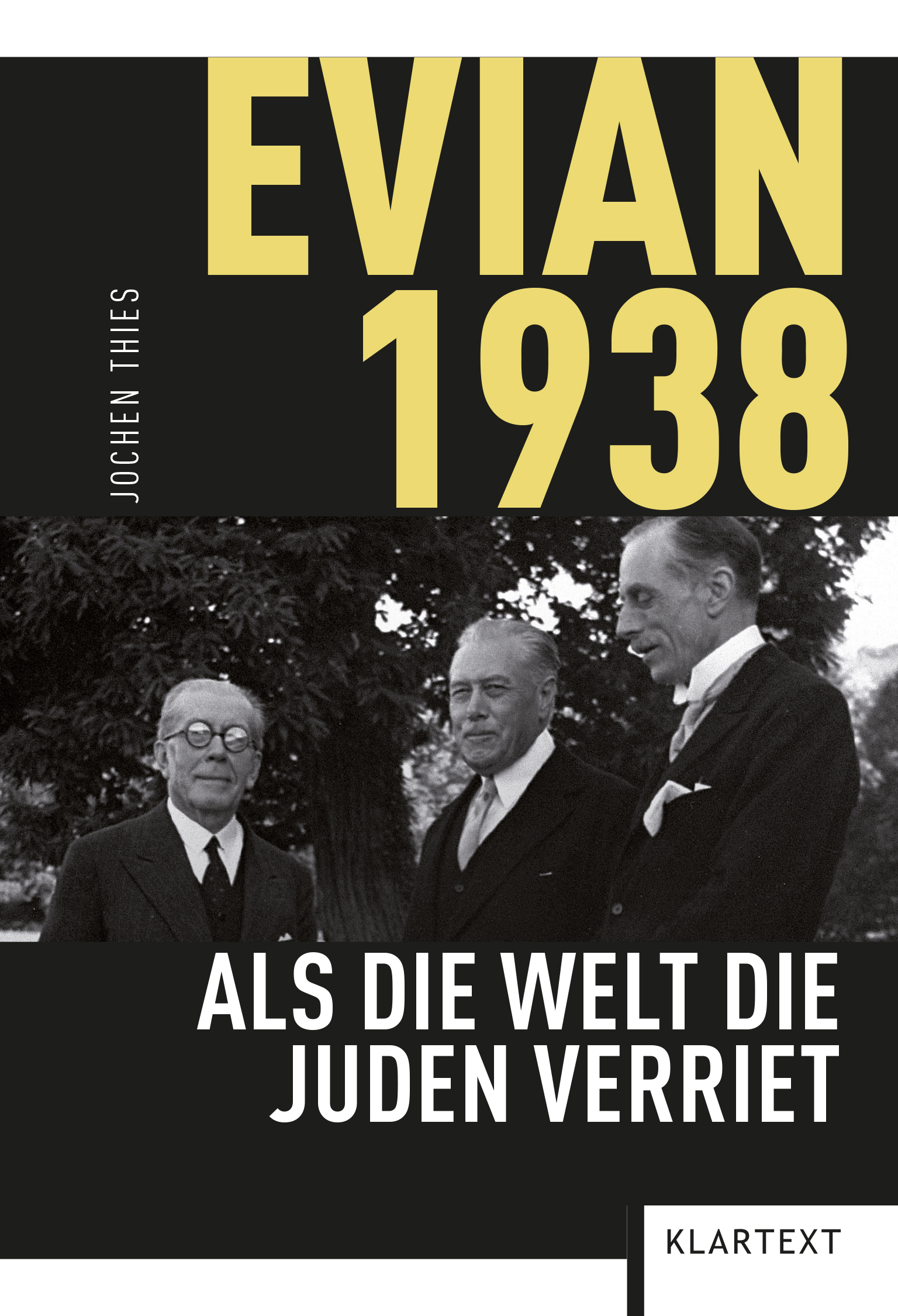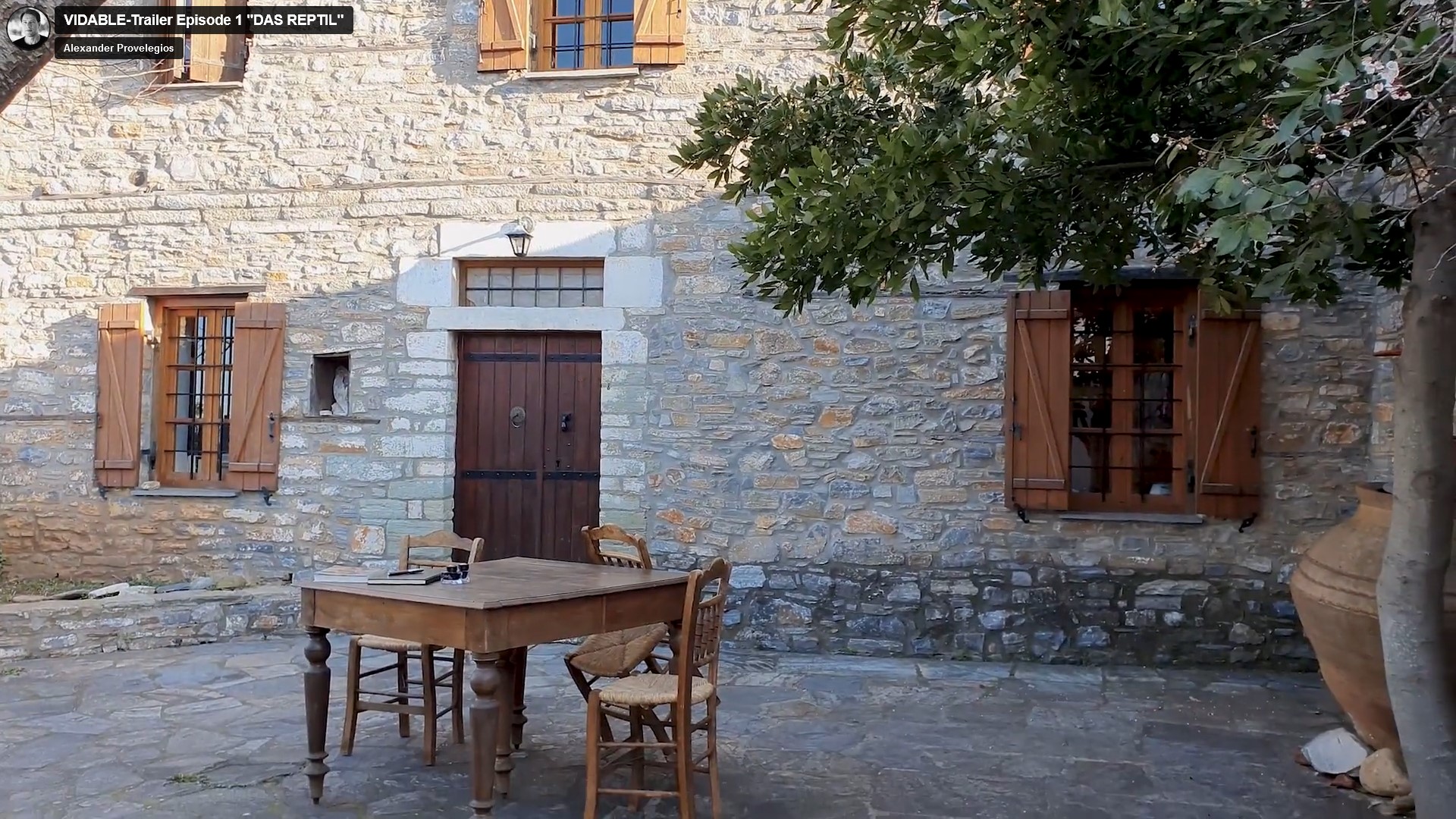The German Times, March 2018
When the world betrayed the Jews
In the July of 1938, delegations from 32 countries met in Evian to discuss how and by whom refugees fleeing the Nazis could be helped. The ten days at the spa town ended with a defeat for civilization
By Peter H. Koepf
It has been almost 80 years since a Swiss court first convicted a Swiss citizen for a humane, indeed heroic act. Adolf Studer, a mechanic from Basel, was arrested at the German border town of Weil am Rhein for using a counterfeit day visa to smuggle a stateless Jew named Leo Silberg from Vienna into Switzerland. Swiss authorities imposed a fine of 20 francs and five days in prison. The judgement was issued on July 7, 1938.
In the wake of the Anschluss, the Nazis were hurrying to “liberate” Austria of its 200,000 Jews, most of whom lived in Vienna. On April 16, 1938, for instance, in Pama and Kittsee, two towns in eastern Austria, they dragged Jews from their beds, transported them to the Czech border and interned them on a breakwater in the middle of the Danube. However, neither Czechoslovakia nor Hungary were willing to take in the 51 undesired and now stateless individuals. When the international press, including The New York Times and the Neue Zürcher Zeitung, reported on their fate, a Jewish relief organization took them in until a country agreed to allow them entry.
But no one wanted them. Swiss authorities feared a “Jewification” of their country, and they blamed the Nazi regime for the flood of refugees. The chief of the border and alien police, Heinrich Rothmund, objected “with all seriousness … to Jews being smuggled in … with the help of the Viennese police.” Switzerland – he made it known – needed Jews “just as little” as Germany did.
Since March 31, 1933, directives “addressing the immigration of Israelites” prevailed in Switzerland, yet some 5,000 Jewish Austrians succeeded in finding refuge there after the Anschluss. This was the result of a number of factors, such as empathetic officials; one of which was a police captain who allowed hundreds of refugees to cross the border, and, like Adolf Studer, was later tried and convicted for breach of duty and the falsification of documents.
In the meantime, the 51 Jews on the Danube tugboat were awaiting the outcome of a conference on refugees, which – one day before Studer’s conviction in Evian – promised to bring help to German and Austrian Jews. But let it be known: Not one of the participating delegations from 32 countries in Europe and the Americas as well as Australia and New Zealand assumed adequate responsibility for the crisis, and not one was able to fulfill the hopes of the 51 refugees on the ship nor the half million Jews in Austria and Germany. They failed this test of humanity and – just as disgracefully as they do today – sought to justify their inaction.
The Berlin-based journalist and historian Jochen Thies wrote a fact-filled book (Evian 1938. When the world betrayed the Jews) on the Evian conference that stretched from July 6 to July 15 in 1938. His account retraces the ten days during which the world betrayed the Jews; it is a story of falsehood, mendacity and the obfuscation of responsibility. The French-language conference report, which languished largely unnoticed in a Bavarian archive, led Thies to conclude that “had the conference taken a different course, it could have saved the lives of countless German Jews, and presumably European Jews as well.”
Could have. A half million Jews were living under the Nazis at that point; only 50,000 had fled since Hitler took power on Jan. 30, 1933. Pressure was mounting, and US President Franklin D. Roosevelt would seize the initiative. In a cabinet meeting on March 18, he asked: “America was a place of refuge for so many Germans during the revolution of 1848. Why can’t we offer them a home now?” However, Roosevelt did not seem to represent the majority of his people; a survey conducted in March 1938 revealed that threequarters of those asked objected to granting entry to a greater number of Jewish refugees from Germany. Only 17 percent were in favor of the idea.
Nevertheless, Roosevelt’s initiative provided impetus for an international conference. But where could it take place? Three countries refused to host, including Switzerland, which feared its neighbors to the north and stressed its neutrality when faced with the prospect of accepting throngs of refugees. Hence the choice of Evian; the French spa town on the south shore of Lake Geneva ultimately welcomed delegations from 32 countries, 39 private organizations and 200 journalists.
Hitler would send jeers from Konigsberg: “I can only hope and expect the other world, which feels such deep sympathy for these criminals, is at least generous enough to convert this sympathy into practical help. As far as I am concerned, we are prepared to place our luxury ships at the disposal of these countries for the transportation of these criminals.”
And thus began the defeat of civilization. Britain’s chief negotiator, Edward Turnour, declared on the first day: “Great Britain is not an immigration country.” Asylum would only be conceivable under “strict limits.” Denmark then announced the visa requirement for Austrian Jews it had implemented at the beginning of July. Turnour’s French counterpart, Henry Victor Berenger, followed with his own pre-emptive defense by citing the number – 200,000 – of refugees already enjoying asylum in France as well as the number – more than three million – of foreign nationals living in his country at that time. He saw only “limited possibilities,” which echoed the perspective of Beucker Andreae, the director of legal affairs for the Dutch foreign ministry.
The US representative Myron C. Taylor, an industrialist, pointed out that his country had taken in 27,370 people from Germany that year – men and women, rich and poor, from all races and faiths. The prepared speeches made it patently clear: The US would raise neither its immigration quotas nor its financial contributions to the cause. Any additional expenditures would have to come from private organizations.
The Belgian Robert de Foy also created a pretext for limited possibilities by emphasizing his country’s dense population and pressing unemployment, the latter of which was also bemoaned by Canada’s Hume Wrong, while the Brazilian Helio Lobo feigned a sense of responsibility in warning of what European Jews should expect to find in Sao Paulo and Rio de Janeiro: unemployment. And Australia’s Lieutenant Colonel Thomas Walter White gave free reign to his cynicism and xenophobia in claiming that his country had never had a race problem, and did not want to acquire one.
The New York Times was quick to note which way the wind was blowing. Charles Streit wrote of a “none too trustful poker game.” The great nations sought to ward off immigration and offload the burden to others. An “atmosphere of inhospitableness” prevailed.
Commentary in French newspapers, however, took on a defensive posture. The title page of the daily newspaper Journal featured historian Louis Madelin, a member of the Academie francaise, citing that the number of individuals driven from their own countries and living in France was growing, while “our low birth rate presents the danger that one day soon the French could lose their own country.” He openly feared what we now refer to as a “flood of asylum seekers.” The newspaper La Croix shared this concern, as its editorial board warned of “self-destruction at the alter of neighborly love,” and limited the scope of Christianity’s obligation of philanthropy and good samaritanism to include only fellow countrymen.
Evian saw much talk of humanity and brotherly love, but talk it remained. Members of the 24 participating non-governmental organizations (NGOs), including the Reich Association of Jews in Germany and the Aid Organization of German Jews (Austrian NGOs were prohibited from taking part) became quickly disillusioned. Each was allotted but one speaker who could address the conference for ten minutes, which was later limited to only five minutes.
Golda Meir, who would later became prime minister of Israel, wrote in her memoirs: “Sitting there in that magnificent hall and listening to the delegates of 32 countries rise, each in turn, to explain how much they would have liked to take in substantial numbers of refugees and how unfortunate it was that they were not able to do so, was a terrible experience. […] I wanted to get up and scream at them all, ‘Don’t you know that these „numbers“ are human beings, people who may spend the rest of their lives in concentration camps, or wandering around like lepers, if you don’t let them in?’ I didn’t know then that not concentration but death camps awaited the refugees whom no one wanted.”
But with whom did the burden lie to grant asylum to Jews? Colombia’s Jesus Maria Yepes averred: “My esteemed French peers, my esteemed English peers, my esteemed Dutch peers, you take precedent.” Today, the reasoning is that refugees should stay in their regions: Africans in Libya, Syrians and Iraqis in Jordan and Turkey. And autocratic heads of state in these reasons are – rightly so – currently receiving funds from the EU for this purpose. Emmanuel Macron has plans to build reception camps in northern Africa, which can be seen as detention centers acting as a bulwark against a renewed “flood of asylum seekers.”
The Swiss delegate to the conference was Heinrich Rothmund, the man who had said his country needed Jews just as little as Germany did. In Evian he announced that, at best, his country could act as a transit country. Already, he calculated, each Swiss citizen was paying 40 francs for “the foreigners,” while countries of the former Danube Monarchy – Hungary and Czechoslovakia – had closed their borders. Switzerland had thus been forced to introduce visa requirements for Austrian passport holders. Naturally Switzerland wanted to help, he conceded, but that was dependent on the quotas that countries overseas were prepared to establish. According to Gosta Engzell, Sweden, too, wanted to look beyond Europe’s borders to find host countries for the refugees from Germany and Austria. His country was in favor of an institution taking care of the issue, and was prepared to take in a certain number of refugees with the qualifications Sweden required – even Jews who were not considered political refugees.
However, representatives from countries overseas resisted this deportation of Jews to their part of the world, and provided excuses that were at least as good as those aired by European states. But they showed some interest as well; the Central American countries – Costa Rica, Honduras, Nicaragua and Panama – declared themselves ready to take in refugees if other participating states were also prepared to do so with numbers proportional to each country’s land area. They already had enough merchants and intellectuals, yet had no money to help new arrivals. Cuba’s delegate, Juan Escobar, refused to accept any refugees in excess of statutory quotas; however, tourists depositing a check worth at least $5,000 would be welcome along with investors staking at least $25,000, albeit only if such an investment did not economically disadvantage local populations. But how were the Jewish refugees to procure so much money? Most were destitute, having been plundered by a German regime that forbade them to leave the Reich with significant amounts of money or valuables in tow.
Argentina, which announced its visa requirement on the seventh day of the conference – July 12, 1938 – joined with Ecuador and Uruguay to declare that they could only accept blue-collar laborers. At last, Peru’s representative, Garcia Calderon Rey, offered words with a humanistic ring to them: At the very least, a continent should provide no opportunity for hate. But he then continued with some conditions; he saw the “civil peace” as being endangered by minorities “who are not open to our traditions and aims.” In other words, those who do not subjugate themselves to the – to use a contemporary term – “dominant culture” are themselves responsible for the results.
Paraguay’s Gustavo A. Wiengreen conceded that his country needed the people in order to exploit its natural resources; those willing to work would be granted entry. Albeit, the government had decreed the previous March that only those that could contribute to Paraguayan agriculture would be welcome.
Jochen Thies was distraught to read the documents before him: “Only evasions, only excuses, procrastination ad infinitum.” At issue was the distribution of 500,000 refugees across the entire globe. This “less than utopian number” could possibly have been saved by a little good will. And 77 years later, 500 million Europeans could not manage to distribute 1 million refugees across 28 countries. It was a shameful, utter failure of the system of nation states.
The summary by the Evian committee, which comprised both aid organizations and stakeholders, read as follows: “The moving reports delivered to the subcommittee lay bare an enormous human tragedy requiring immediate measures to improve the situation, and a challenge to the conference to agree promptly on cooperative action.” But the resolution once again recited all the reasons to forgo a quota system. An aid program for refugees was necessary, but the countries of origin needed to be prepared to work together, to allow the prospective emigrants to bring assets and valuables with them and to organize an orderly departure. It was also decided to meet next in London and to form an intergovernmental committee that would begin its work in August. “From that day forward,” writes Thies, “all plans, having only been vaguely formulated, were further muddied.”
Ten months later, on Apr. 6, 1939, Edward Turnour, Lord Winterton, recognized the failure in an address in Britain’s lower house of parliament. The plan to save the Jews foundered under the reality “that not one of the thirty-two IGC Governments was prepared to admit neither any moral obligation to solve the refugee question nor financial liability for the transfer and upkeep (…) or for the permanent settlement of refugees.” Instead, “the unhappily pervasive (…) sub-current of anti-Semitism or anti-alienism” prohibited governments from doing more for refugees than they did for their own people. Instead, the German and Austrian Jews were shoved “every which way across the map.” “One moment they’re in Madagascar, the next it’s Alaska, and in the end they’re stuck behind lowered boom gates.” Evian became a “Jewish Munich.” Kristallnacht was but 117 days away.
The scorn and derision of the Völkischer Beobachter reached the emissaries as they were still convening in Evian: “No one wants them,” read the Nazi party organ on July 13. Adolf Hitler took his time in delivering an evaluation of the conference. From a speech he gave in the Reichstag on Jan. 30, 1939: “It is a shameful spectacle to see how the whole democratic world is oozing sympathy for the poor tormented Jewish people, but remains hard-hearted and obdurate when it comes to helping them.”
Jochen Thies asks: “Has the world learned nothing from the non-event of 80 years ago? What has changed since 1938?” His answer is ultimately damning: “If one recalls the reasoning of the 32 states in Evian, very little. Even the parlance of then resembles that of now.“
Jochen Thies: „Als die Welt die Juden verriet“, Klartext Verlag, Dezember 2017, 200 Seiten, Euro 18,95







